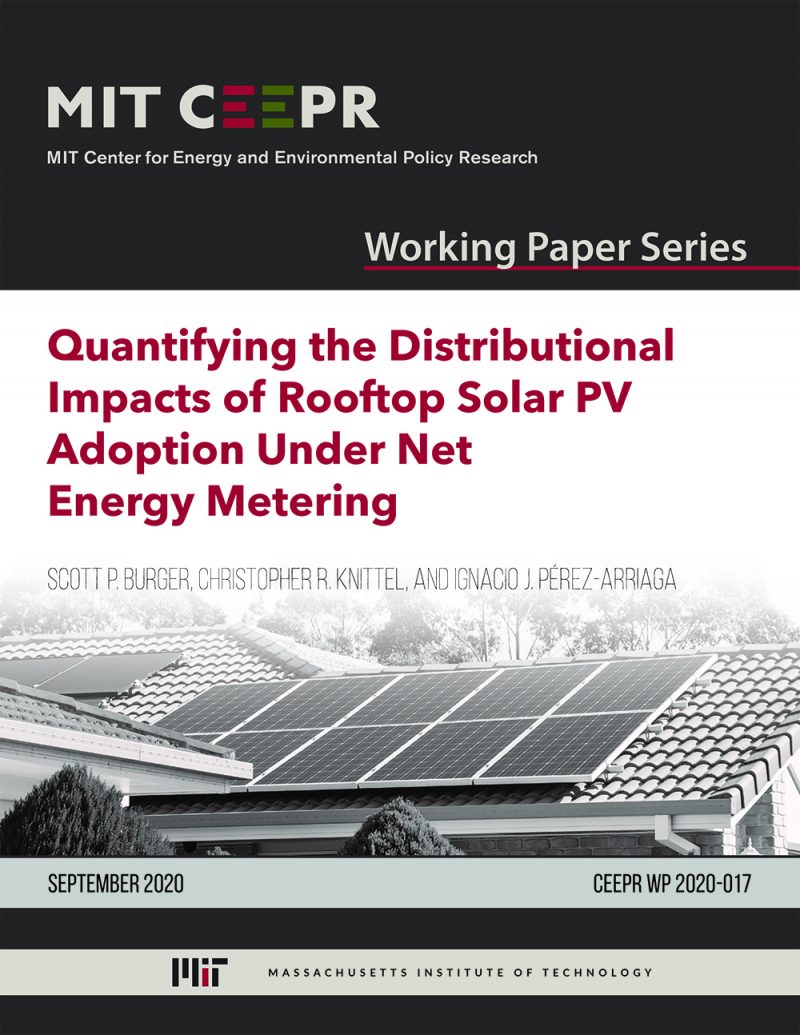Quantifying the Distributional Impacts of Rooftop Solar PV Adoption Under Net Energy Metering
Scott P. Burger, Christopher R. Knittel, and Ignacio J. Pérez-Arriaga
September 2020
We show that residential rooftop solar photovoltaics (PV) adoption under typical electricity tariffs that inefficiently recover residual costs through volumetric charges creates substantial income distributional effects. Specifically, rooftop solar PV adoption under such tariffs increases average expenditures substantially for non-adopters, which tend to be predominately lower income customers. At high penetrations of rooftop solar PV inefficient rates can increase average expenditures for non-adopting customers by as much as 80%. Efficient tariffs prevent this regressive cost shifting. Further, we find that under moderate PV adoption low-income consumers may be better off under a tariff that recovers residual costs through fixed charges—a rate design often criticized for being regressive in nature. In short, failing to reform residential electricity rates may lead to worse distributional outcomes than reforming rates, even if reforms are implemented naively.
Keywords: Electricity tariff design, socioeconomic status, pricing, rooftop solar photovoltaics, regulation.



